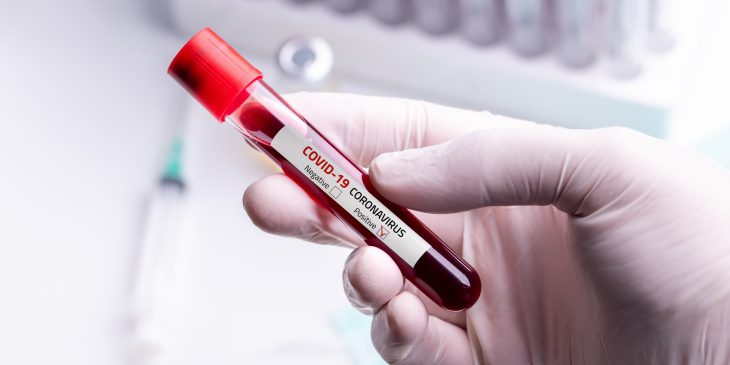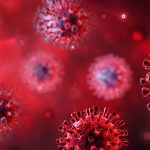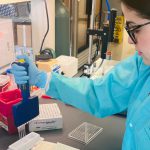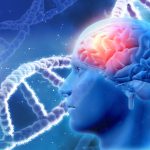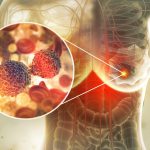There are two main types of tests for SARS-CoV-2, the virus that causes COVID-19: those that tell if someone has the virus and those that tell if someone had it.
A recent study by UPMC pathologists sheds new light on the latter type – known as an antibody assay – by comparing the performance of various commercially available tests at different times after illness. COVID-19 antibody assays are mostly used to find out how many people in a given population already had the virus and to determine who can donate convalescent plasma. They also may be important in assessing the effectiveness of vaccines.

Dr. Sarah Wheeler
“We were surprised to see such large differences in antibody detection both at early and later timepoints,” said senior author Dr. Sarah Wheeler, associate medical director of clinical immunopathology at UPMC.
Antibodies are produced by the immune system in response to foreign pathogens. When antibodies against a virus are found in someone’s blood, it’s a telltale sign that person previously encountered the virus.
Wheeler and her colleagues compared six commercial SARS-CoV-2 antibody assays for how well they correctly identify people who are positive or negative for antibodies – otherwise known as a test’s sensitivity and specificity – and the reliability of the test depending on when it was administered after infection.
“We found that some assays detected 20-30% fewer convalescent cases than other assays,” said Wheeler, also an assistant professor of pathology at the University of Pittsburgh School of Medicine. She noted that this could significantly affect studies that seek to determine what proportion of people in a given community have already had the virus.
The team did not specify one test as better than the others, but rather noted that different tests work better in different situations. For example, one test detects antibodies quickly after infection, but does not detect antibodies about a month out, meaning it would be better for determining recent infection compared to infection from an earlier outbreak.
Because UPMC is primarily using antibody assays to assess people who recovered from COVID-19 for their eligibility to donate their antibody-rich blood plasma – known as convalescent plasma – to help patients battling the illness, Wheeler said the health system uses tests that perform well three to four weeks after infection. Epidemiological studies, meanwhile, would need to calculate the false positivity rates for the population of interest in the tests they’re using to draw accurate conclusions about COVID-19 prevalence in a population.
To learn about the types of tests assessed and their performance, read the article in the American Journal of Clinical Pathology.



